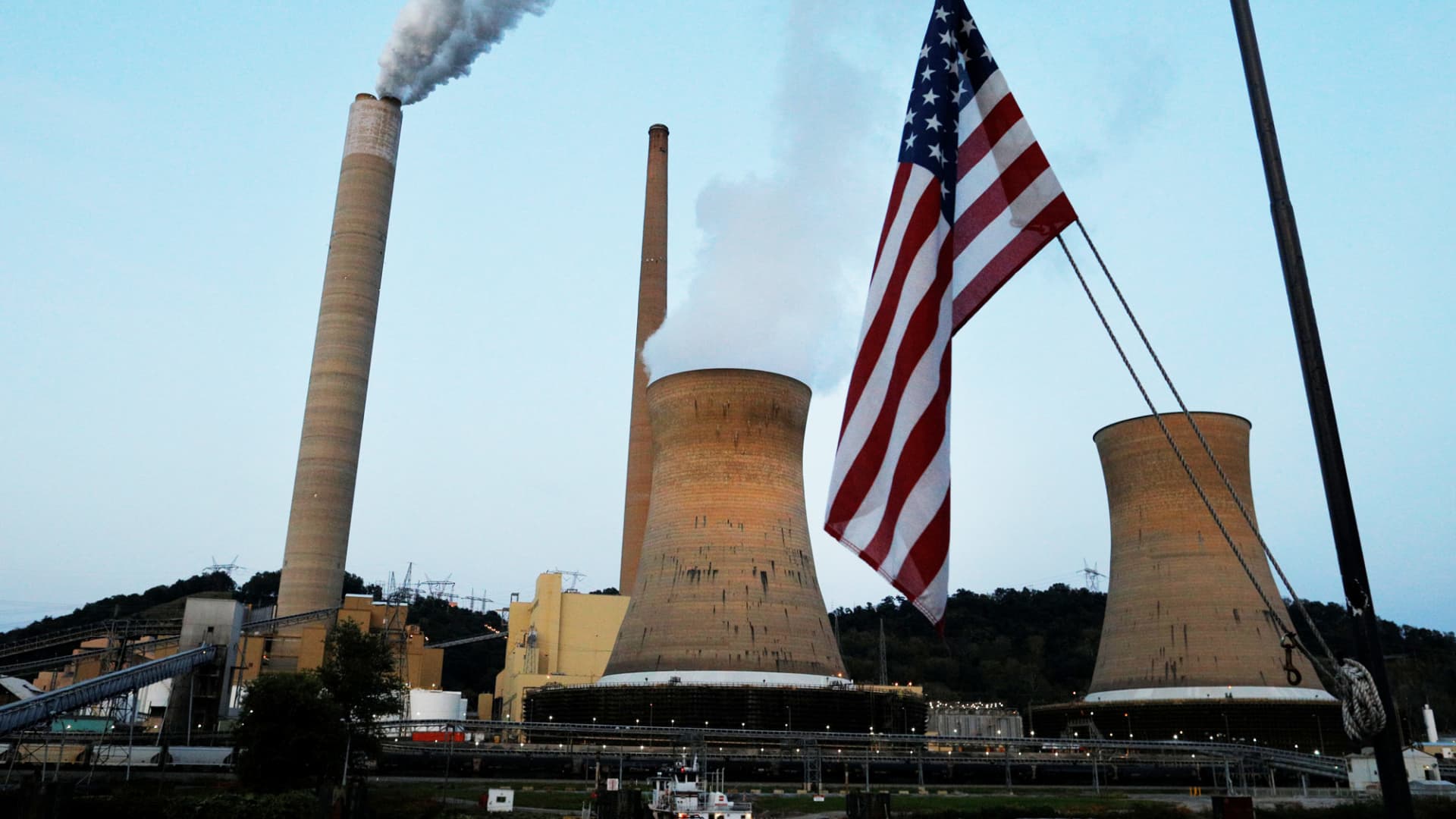The U.S. flag flies on Campbell Transportation’s towboat M.K. McNally as it passes Mitchell Power Plant, a coal-fired power-plant operated by American Electric Power (AEP), on the Ohio River in Moundsville, West Virginia.
Brian Snyder | Reuters
The Environmental Protection Agency on Wednesday proposed stricter limits on how coal-fired power plants dispose of wastewater containing pollutants like arsenic and mercury, which have contaminated the country’s rivers, lakes, streams and underground aquifers.
The proposed rule will reduce the discharge of pollutants into the country’s waterways by about 584 million pounds each year, according to the agency, which said the reduction would specifically benefit low-income communities and communities of color that are disproportionately exposed to power plant pollution.
The proposal comes after the Trump administration in 2020 weakened regulations that required coal plants to treat polluted wastewater with modern filtration methods and other technology before it was dumped into waterways.
Environmental groups argued that Trump’s regulatory rollback allowed the energy industry to use cheaper and less effective methods to treat polluted wastewater and urged the Biden administration to strengthen discharge limits.
In 2021, the Biden administration said it was kicking off a new rulemaking process to reverse the wastewater rollback and would unveil new requirements on wastewater by next fall. Meanwhile, many coal plants were allowed to dispose of toxic wastewater into waterways as the agency drafted new limits.
“This proposed rule represents an ambitious step toward protecting communities from harmful pollution while providing greater certainty for industry,” EPA Administrator Michael Regan said in a statement. “EPA’s proposed science-based limits will reduce water contamination from coal-fired power plants and help deliver clean air, clean water, and healthy land for all.”
Power plants, especially those burning coal, are responsible for 30% of all toxic pollution from industrial sources discharged into the country’s waters. Pollutants in wastewater have contaminated drinking water sources, recreational waters and aquatic life across the country.
The agency’s rule would impose more stringent standards for three types of wastewater generated at power plants and eliminate toxic scrubber and bottom ash wastewater discharges. The EPA estimates the proposed rule will cost power plant operators collectively about $200 million each year.
Holly Bender, senior director of energy campaigns at the Sierra Club, said in a statement that the Biden administration’s proposed rule will hold utilities accountable for pollution.
“While coal plants are releasing toxic chemicals and sludge into our waterways, affordable technologies exist to eliminate nearly all of the toxic metals and other chemicals in power plant wastewater — and many plants are already using them,” Bender said.
The EPA said the proposal would also retain and refresh a compliance path for power plants that commit to stop burning coal by 2028. Power plants that are in the process of complying with existing regulations and plan to stop burning coal by 2032 would be eligible to comply with the proposed rule, the agency said.
Dozens of power plants across the country are set to stop burning coal this decade as the industry continues to transition away from climate-changing fossil fuels to cleaner-burning natural gas and renewables such as wind and solar.


